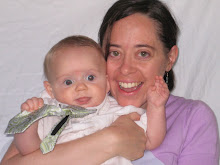re-focus
Just today I had a two-hour conversation with two representatives in the Department of Workforce Services in Utah. We spoke about poverty in Utah and the system--previously referred to as welfare, but currently named the Family Employment Plan--that deals with poverty issues. I just want to throw out some very interesting points that were clarified in that conversation:
- The majority of welfare recipients are children. The parents, then, do not qualify when their kids reach 18 years of age. And the increase in cash assistance for one more child is a mere $89 a month, hardly making increased welfare through increased children a profitable activity. (I hope this is tearing down the myth that people use childbirth as a way to receive welfare assistance.)
- Also, many of the recipients don't max out on the time limit. In Utah, the lifetime limit for receiving cash assistance is 3 years, whereas the federal mandate from 1996 specified no more than 5 years. (Utah is definitely conservative.)
- Welfare as an entitlement ceased to exist in the 1980s. Since then, participants only qualify for a limited amount of time.
- Just last month, DWS recorded having just over 2,400 clients--the LOWEST number ever in the system. They trace that low number to a federal "reauthorization" reform that was enacted in December of 2005 that has made welfare benefits aligned to more strict guidelines. These guidelines have made receiving cash assistance more of a hassle for many recipients, especially when Utah's economy is doing so well.
- The goal of the Family Employment Plan is not to end poverty, but to increase a family's assets through income, savings, child support, or social security assistance.
Welfare, then, is a strategic system focused on getting people connected with available resources and working toward measurable goals. I found the conversation enlightening, and I felt the system was in very capable hands.
But the next step remains: I need to have conversations with those who are IN poverty to get their view on this whole thing. As I have considered the poverty I first came across in Argentina, I realized it was nothing like the poverty I see in the U.S. Argentines were living in mosquito-infested shacks with tin roofs and no running water. Their reality was much more sparse than the reality faced by many Americans in poverty. But somehow, they survived. They kept living and having kids. I asked the ladies today about that--if someone gets kicked off of the system, does she wither up and die? No, she finds other ways to survive. It's not pleasant, but humans are amazingly resilient. I wish that the power we have in being resilient was focused more toward alleviating the pain of others. And so I continue my trek toward doing my small token part to alleviate poverty.

